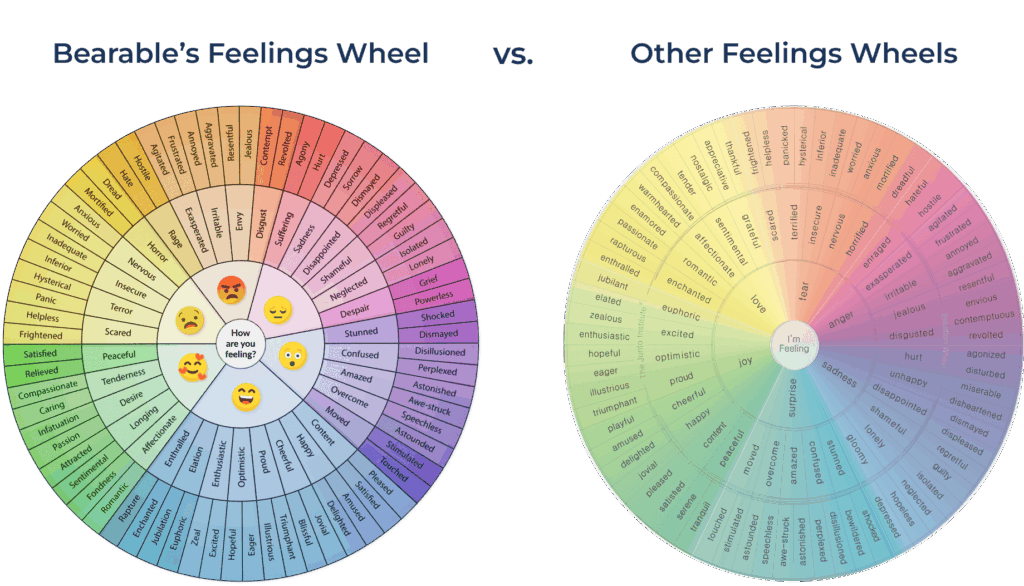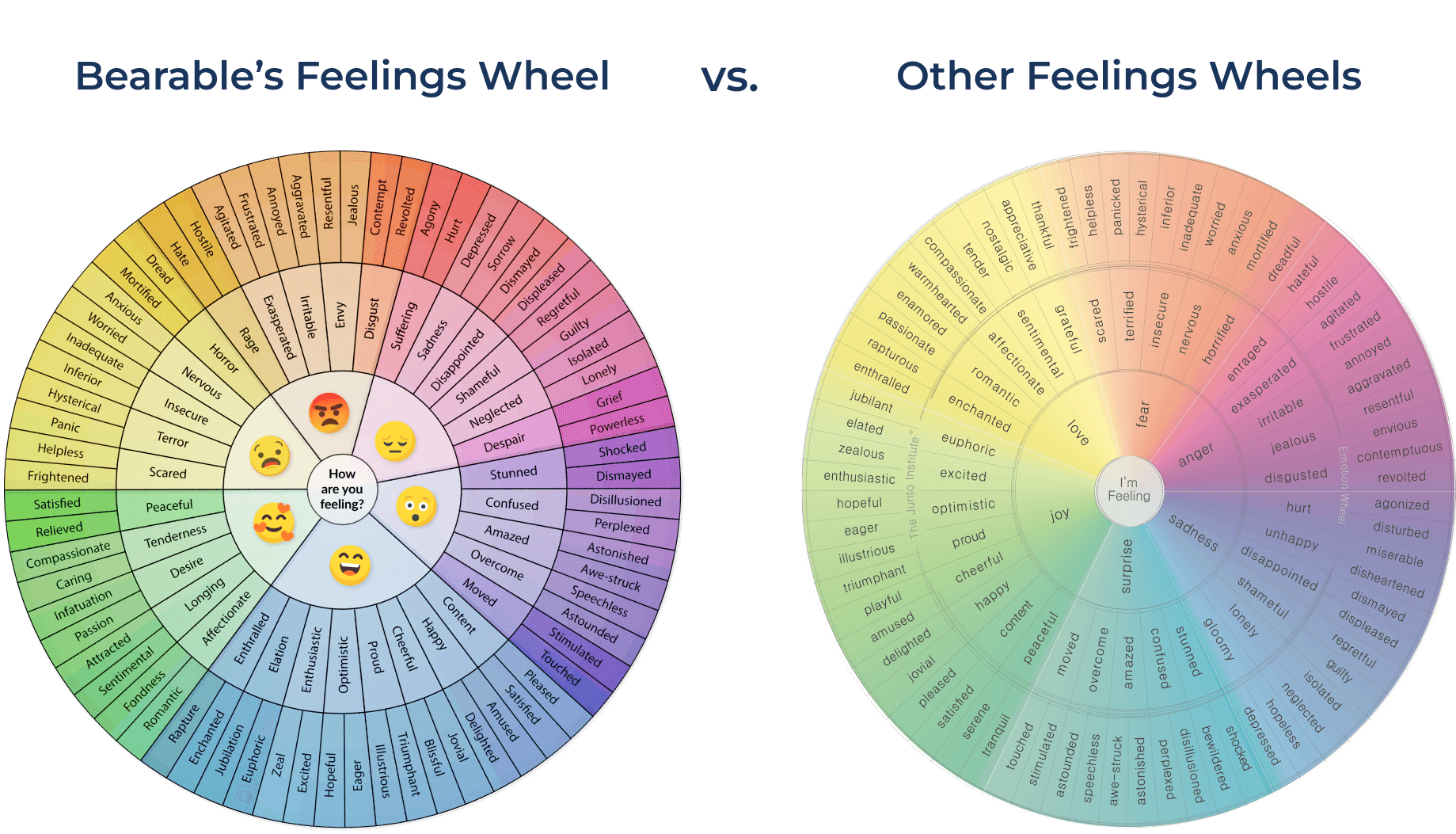
Navigating the Labyrinth of Feelings: When Emotions Overwhelm
Understanding and managing our feelings is a cornerstone of mental and emotional well-being. From the subtle nuances of contentment to the overwhelming surge of grief, feelings color our experiences and shape our interactions with the world. But what happens when these feelings become too intense, too frequent, or too difficult to manage? This article explores the complexities of overwhelming emotions, delving into their causes, consequences, and practical strategies for regaining control. We will discuss the spectrum of feelings that humans experience and how to identify when they are becoming a problem.
Understanding the Spectrum of Human Feelings
Human feelings are incredibly diverse, ranging from joy, love, and gratitude to sadness, anger, and fear. These emotions serve important functions. Joy motivates us to seek out positive experiences, while fear alerts us to potential dangers. Sadness allows us to process loss, and anger helps us assert our boundaries. Each feeling, even the unpleasant ones, plays a crucial role in our survival and well-being. However, these can sometimes become overwhelming.
It is important to distinguish between experiencing a feeling and being consumed by it. It’s normal to feel sad after a loss or angry when wronged. The problem arises when these feelings become chronic, debilitating, or disproportionate to the situation. For example, persistent sadness that interferes with daily functioning may indicate depression. Uncontrolled anger can damage relationships and lead to aggressive behavior. Understanding the difference is the first step toward managing overwhelming feelings.
Identifying the Triggers of Overwhelming Feelings
Many factors can contribute to overwhelming feelings. Stressful life events, such as job loss, relationship problems, or financial difficulties, are common triggers. Traumatic experiences, such as accidents, abuse, or witnessing violence, can also lead to intense and lasting emotional distress. Additionally, underlying mental health conditions, such as anxiety disorders, depression, bipolar disorder, and borderline personality disorder, can significantly impact emotional regulation. It’s critical to understand when to seek professional help.
Furthermore, physical health can influence our emotional state. Chronic pain, hormonal imbalances, and certain medical conditions can exacerbate feelings of anxiety, depression, and irritability. Substance abuse can also disrupt emotional regulation, leading to erratic and unpredictable mood swings. Recognizing these potential triggers is essential for developing effective coping strategies. Consider keeping a journal to track your feelings and identify patterns.
The Impact of Overwhelming Feelings on Daily Life
Overwhelming feelings can have a profound impact on various aspects of daily life. They can impair our ability to concentrate, make decisions, and solve problems. They can also strain our relationships, leading to conflict, isolation, and loneliness. In severe cases, overwhelming feelings can contribute to physical health problems, such as headaches, stomachaches, and fatigue. The inability to manage these feelings can lead to a downward spiral, affecting both mental and physical health.
Moreover, overwhelming feelings can affect our work performance, academic achievements, and overall sense of well-being. They can lead to procrastination, absenteeism, and decreased productivity. They can also undermine our self-esteem and confidence, making it difficult to pursue our goals and aspirations. Addressing these feelings proactively is crucial for maintaining a healthy and fulfilling life. If you notice these problems arising when you are stressed, it’s time to take action.
Strategies for Managing Overwhelming Feelings
Fortunately, there are many effective strategies for managing overwhelming feelings. These strategies can be broadly categorized into self-help techniques and professional interventions.
Self-Help Techniques
- Mindfulness Meditation: Practicing mindfulness meditation can help you become more aware of your feelings without judgment. By focusing on the present moment, you can learn to observe your emotions without being overwhelmed by them.
- Deep Breathing Exercises: Deep breathing exercises can help calm your nervous system and reduce feelings of anxiety and panic. Slow, deep breaths can signal to your body that you are safe and relaxed.
- Physical Exercise: Regular physical activity can release endorphins, which have mood-boosting effects. Exercise can also help reduce stress and improve sleep quality.
- Journaling: Writing about your feelings can help you process them and gain insights into their underlying causes. Journaling can also be a cathartic outlet for pent-up emotions.
- Social Support: Connecting with friends, family, or support groups can provide emotional support and reduce feelings of isolation. Talking about your feelings with someone you trust can be incredibly helpful.
- Healthy Lifestyle Habits: Maintaining a healthy diet, getting enough sleep, and avoiding substance abuse can significantly improve your emotional well-being.
Professional Interventions
- Therapy: Psychotherapy, such as cognitive-behavioral therapy (CBT) or dialectical behavior therapy (DBT), can provide you with tools and techniques for managing overwhelming feelings. A therapist can help you identify and challenge negative thought patterns, develop coping skills, and regulate your emotions.
- Medication: In some cases, medication may be necessary to manage underlying mental health conditions that contribute to overwhelming feelings. Antidepressants, anti-anxiety medications, and mood stabilizers can help regulate your mood and reduce emotional distress. A psychiatrist can assess your needs and prescribe appropriate medication.
- Support Groups: Participating in support groups can connect you with others who are experiencing similar challenges. Support groups can provide a sense of community, reduce feelings of isolation, and offer practical advice and encouragement.
Building Resilience in the Face of Overwhelming Feelings
Building resilience involves developing the capacity to bounce back from adversity and cope with overwhelming feelings. This process involves cultivating self-awareness, developing coping skills, and fostering a positive mindset. It’s about learning to navigate difficult emotions without being defined by them. It’s especially critical when dealing with unexpected life events.
One key aspect of building resilience is learning to accept your feelings without judgment. Acknowledge that it’s okay to feel sad, angry, or anxious. Avoid suppressing or denying your emotions, as this can lead to further distress. Instead, allow yourself to experience your feelings fully, while also practicing self-compassion and kindness. Treat yourself with the same understanding and support that you would offer a friend who is struggling. Learn to recognize when you need to ask for help.
Another important aspect of building resilience is developing a strong support system. Surround yourself with people who care about you and offer unconditional support. Seek out relationships that are nurturing, validating, and empowering. Avoid relationships that are toxic, draining, or undermining. Remember that you are not alone, and there are people who care about you and want to help.
Seeking Professional Help: When to Take the Next Step
While self-help techniques can be beneficial for managing overwhelming feelings, there are times when professional help is necessary. If your feelings are interfering with your daily functioning, causing significant distress, or leading to thoughts of self-harm, it’s important to seek professional support. A therapist or psychiatrist can provide you with a comprehensive assessment, develop a personalized treatment plan, and offer ongoing support and guidance. [See also: Coping with Anxiety]
Don’t hesitate to reach out for help if you are struggling to manage your feelings on your own. Seeking professional support is a sign of strength, not weakness. It demonstrates that you are committed to your well-being and willing to take the necessary steps to improve your emotional health. Remember, you don’t have to suffer in silence. There are people who care about you and want to help you navigate the labyrinth of feelings and find your way back to emotional balance.
Conclusion
Navigating the complex landscape of human feelings is an ongoing journey. Understanding the spectrum of emotions, identifying triggers, and implementing effective management strategies are crucial steps in maintaining emotional well-being. When feelings become overwhelming, it’s essential to utilize self-help techniques, seek professional support when needed, and build resilience to face future challenges. Remember, prioritizing your emotional health is an investment in your overall quality of life, allowing you to experience a richer, more fulfilling existence.

